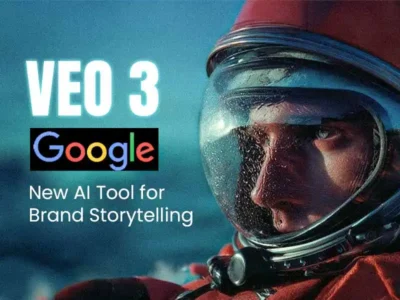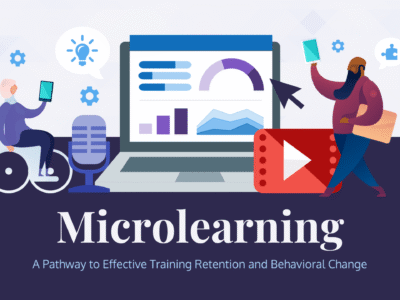Code of Conscience: Ethical Decision-Making and AI Governance in the Digital Age
Duration: 6–8 Weeks (or Self-Paced)Level: IntermediateFormat: Video Lessons, Case Studies, Reflective Journals, Ethical Scenarios, Discussions, Capstone Policy ProjectTools Used: Ethical decision-making frameworks, algorithm audit checklists, AI policy templates, stakeholder analysis grids Course Objective To equip learners with the principles, tools, …
Overview
Duration: 6–8 Weeks (or Self-Paced)
Level: Intermediate
Format: Video Lessons, Case Studies, Reflective Journals, Ethical Scenarios, Discussions, Capstone Policy Project
Tools Used: Ethical decision-making frameworks, algorithm audit checklists, AI policy templates, stakeholder analysis grids
Course Objective
To equip learners with the principles, tools, and frameworks needed to make ethically sound decisions in real-world settings—particularly where artificial intelligence and emerging technologies are involved.
Module 1: Introduction to Ethics and Moral Reasoning
Topics Covered:
-
What is Ethics? Morality vs Legality
-
Types of Ethics: Normative, Applied, Descriptive
-
Classical Ethical Theories: Utilitarianism, Deontology, Virtue Ethics
-
The Ethics of Decision-Making in Leadership and Technology
-
Ethical Dilemmas and Gray Zones
Learning Outcome:
Build foundational knowledge of ethical frameworks and how they apply to personal and professional decision-making.
Activities:
-
Analyze a classic ethical dilemma using multiple ethical theories
-
Reflect on a difficult decision you’ve made and how it aligns with ethical principles
Module 2: Ethical Decision-Making in Practice
Topics Covered:
-
Models of Ethical Decision-Making (PLUS Model, Tucker Model, Ethical Triangle)
-
Identifying Stakeholders and Consequences
-
Bias, Blind Spots, and Rationalization
-
Organizational Ethics and Accountability
-
Case Studies from Business, Law, and Medicine
Learning Outcome:
Develop a systematic approach to making thoughtful and transparent ethical decisions.
Activities:
-
Apply the PLUS Model to a workplace dilemma
-
Map stakeholders in a controversial organizational decision
Module 3: Foundations of AI and Ethical Risk
Topics Covered:
-
What is Artificial Intelligence? Overview of AI Systems
-
Machine Learning, Neural Networks, and Data-Driven Automation
-
Risks in AI Development: Bias, Discrimination, Opaqueness
-
The Ethics of Automation, Surveillance, and Deepfakes
-
Societal and Cultural Implications of AI Use
Learning Outcome:
Understand the ethical challenges inherent in the development and deployment of AI technologies.
Activities:
-
Identify and explain three ethical risks in an AI system you use regularly
-
Watch and critique a documentary on AI ethics
Module 4: Fairness, Accountability, and Transparency in AI (FAT)
Topics Covered:
-
Definitions and Tensions of Fairness
-
Auditing Algorithms for Bias and Discrimination
-
Explainable AI (XAI) and the Right to Explanation
-
Who is Accountable? Developers, Users, Companies
-
Transparency in Data Collection, Consent, and Use
Learning Outcome:
Evaluate AI systems for fairness and propose strategies for responsible algorithm design.
Activities:
-
Analyze a real-world algorithmic bias case (e.g., COMPAS, hiring AI, facial recognition)
-
Draft a fairness and accountability checklist for an AI tool
Module 5: Privacy, Consent, and Data Ethics
Topics Covered:
-
The Value of Privacy in the Digital Age
-
Informed Consent and Data Ownership
-
Surveillance, Tracking, and Behavioral Targeting
-
Data Ethics in Research and Consumer Technology
-
Laws and Regulations: GDPR, CCPA, HIPAA
Learning Outcome:
Understand ethical and legal responsibilities regarding personal data and digital identity.
Activities:
-
Conduct a data privacy audit of a social media platform
-
Develop a data consent form for an AI application
Module 6: Global Perspectives and Inclusive AI
Topics Covered:
-
Cultural Ethics and Global Variations
-
Ethics of Inclusion and Accessibility in AI Design
-
Digital Colonialism and Global AI Power Dynamics
-
Technology’s Impact on Marginalized Communities
-
Ethics in Language Models and Translation Tools
Learning Outcome:
Recognize the global impact of AI and ensure cultural inclusivity in ethical decisions.
Activities:
-
Compare AI ethical standards in different regions (EU, US, China, Africa)
-
Reflect on how AI could positively or negatively affect your local community
Module 7: Regulation, Governance, and the Future of Ethical AI
Topics Covered:
-
Role of Policy, Law, and Regulation in AI Ethics
-
Self-Governance vs External Regulation
-
Global Initiatives: UNESCO, OECD, EU AI Act, US Blueprint for AI Bill of Rights
-
Ethics Boards, Audits, and Accountability Structures
-
The Future of Work, Creativity, and Decision-Making with AI
Learning Outcome:
Evaluate and propose frameworks for ethically managing AI in organizations and society.
Activities:
-
Write a brief policy recommendation on a proposed AI regulation
-
Simulate an ethics committee reviewing a controversial AI product
Module 8: Capstone – Build an Ethical AI Policy Framework
Project Description:
Create a comprehensive ethical framework or policy guideline for an organization or product, including:
-
Ethical values and guiding principles
-
Risk and stakeholder analysis
-
Bias prevention strategy
-
Transparency and accountability mechanisms
-
Monitoring, audit, and feedback systems
Final Deliverables:
-
6–10 Page Ethical Policy Document or Presentation
-
Stakeholder map and ethical decision model diagram
-
Recorded reflection or summary video (3–5 minutes)
Bonus Resources
-
AI Ethics Glossary
-
Ethical Audit Toolkit for AI Projects
-
Algorithmic Accountability Templates
-
List of Top Research Papers and Books on AI Ethics
-
Downloadable Ethical Decision-Making Models
Teaching Methodology
-
Real-world ethical dilemma analysis
-
Video lectures featuring expert insights
-
Interactive reflection and discussion prompts
-
Group-based scenario planning
-
Capstone project aligned with practical applications
Target Audience
-
AI/ML Developers and Engineers
-
Data Scientists and Analysts
-
Policymakers and Legal Professionals
-
Educators, Ethicists, and Researchers
-
Students in technology, law, humanities, or business
-
Anyone seeking to understand the ethical future of digital technologies







